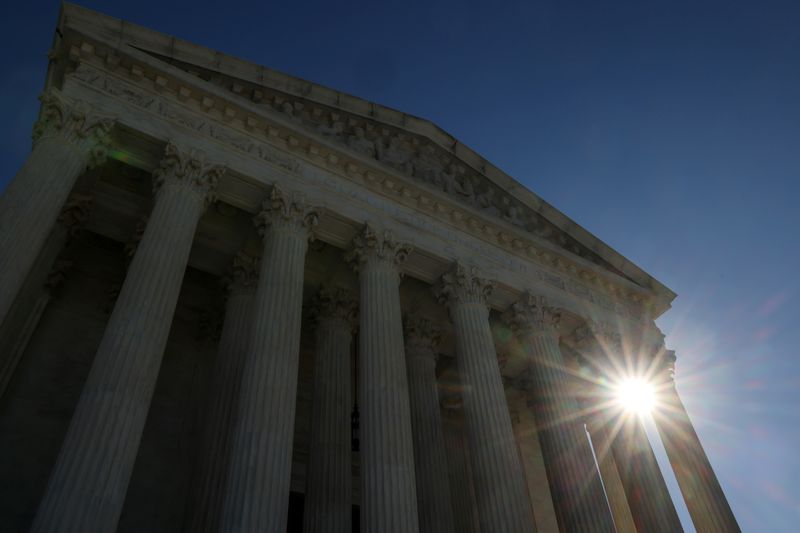By Andrew Chung
(Reuters) - U.S. Supreme Court justices on Monday struggled in a case involving Goldman Sachs Group Inc (NYSE:GS) over how judges should determine when shareholders can collectively sue publicly traded companies for fraudulent statements that keep their stock prices artificially high.
The justices heard arguments in Goldman's appeal of a lower court ruling that permitted a class action suit by shareholders accusing the bank and three former executives of concealing conflicts of interest when creating risky subprime securities before the 2008 financial crisis in violation of a federal investor-protection law.
The Arkansas Teacher Retirement System and other pensions that purchased Goldman shares between February 2007 and June 2010 sued the company, accusing it of violating an anti-fraud provision of the Securities Exchange Act of 1934 and a related SEC regulation.
Central to the dispute are the shareholders' claims that when they bought Goldman shares they relied upon the bank's statements about its ethical principles and internal controls against conflicts of interest, and its pledge that its "clients' interests always come first." Goldman has argued that these "aspirational" statements were too vague and general to have had any impact on the stock price.
Questions posed by the justices during the arguments indicated that when they rule in the case they could provide guidance to judges to consider the generic nature of a company's statements in deciding whether market price was affected.
But the justices appeared to struggle over how to make that determination and what evidence may be used. Businesses often seek to limit the ability of plaintiffs to pursue class actions in order to avoid the higher damages often seen in such litigation.
"How are you defining generic or, stated otherwise, what kinds of statements are not generic?" Justice Brett Kavanaugh asked an attorney for Goldman.
Some justices wondered how courts would analyze a class action against a company that simply called itself "nice."
"There are people who would regard, 'We are a nice company,' as a fraudulent statement depending upon subsequent events, and how would they make that case?" Chief Justice John Roberts asked.
The case stemmed from Goldman's sale of collateralized debt obligations including Abacus 2007 AC-1, which it assembled with help from hedge fund manager John Paulson.
In 2010, Goldman reached a $550 million settlement with the U.S. Securities and Exchange Commission (SEC) to resolve charges that it cheated Abacus investors by concealing Paulson's role, including how he made a $1 billion profit by betting the sale of collateralized debt obligations would fail.
The plaintiffs said that the share price would have been lower if the truth had been known about the company's conflicts of interest, adding that they lost more than $13 billion due to Goldman's conduct.
The Manhattan-based 2nd U.S. Circuit Court of Appeals last year upheld a federal judge's decision to let the plaintiffs sue as a group and rejected the company's argument that generic statements can never impact a stock price.

A ruling is due by the end of June.